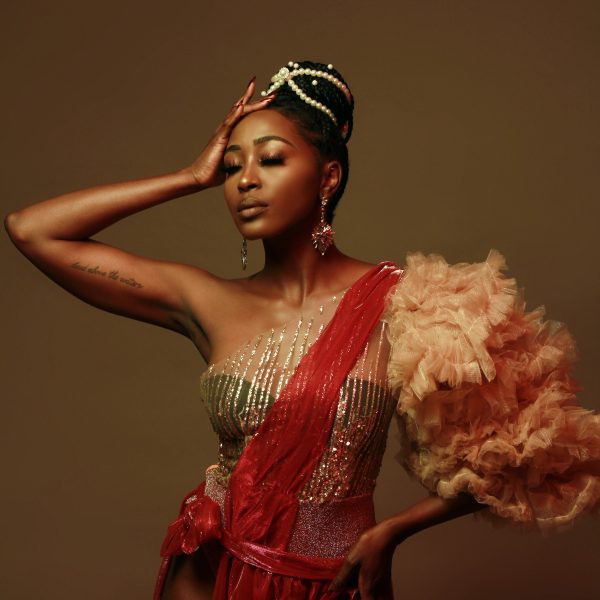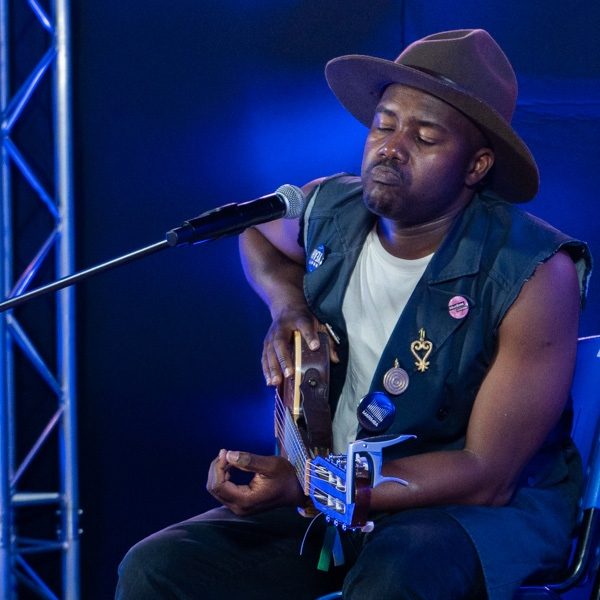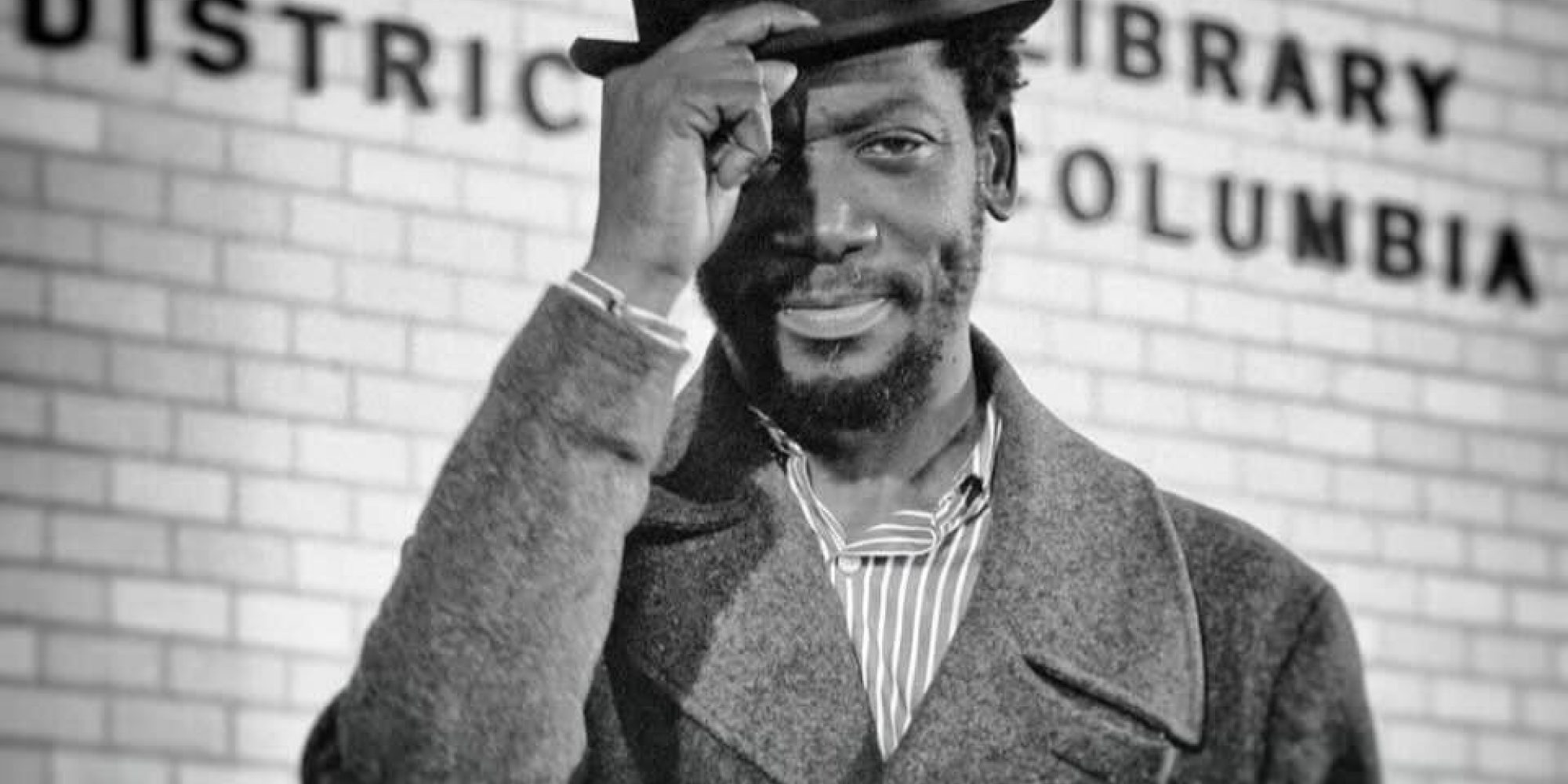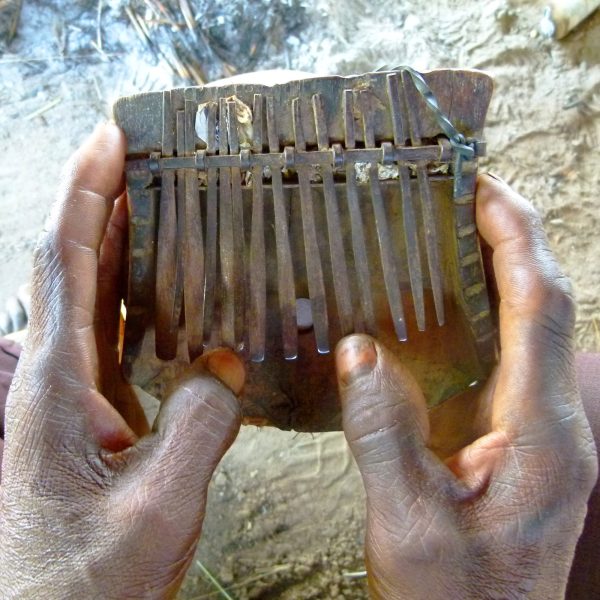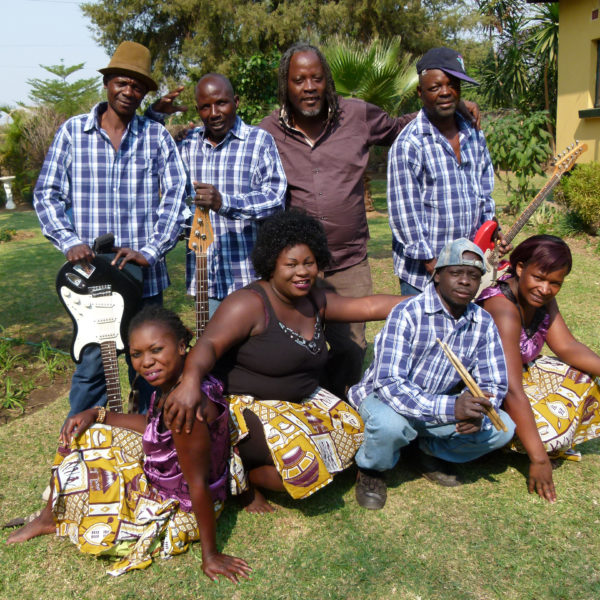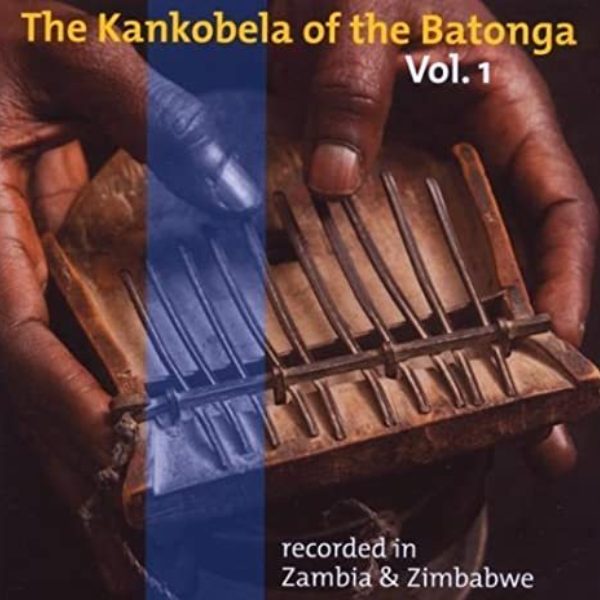Sitali is a New York-born singer-songwriter and guitarist from Zambia who has been in the D.C. and summer festival music circuit scene for years. If you were to ask anyone outside Zambia about Zambian music, they would probably know very little about the electronic music giant of Kalindula music Kalumba Chishala or traditional Barotse silimba xylophone or liimba meaning songs by Inaka Siyauya or Makishi in Barotseland. Contemporary music artists like Mathew Tembo stay close to their Zambian roots but Yo Maps, and Sampa the Great, are aligning themselves with Afrobeats, hip-hop, and rap-inspired music. Until recently there was only a handful of Zambian full-time recording artists including folk singer-songwriter Aleck Nkhata in the 50s, 60s, and 70s Zamrock roots stars Ricki Ililonga and Jagari Chanda. But what happened to Zambian musicians active between the 80s and 2000s?
There is a lost generation due to that other pandemic with the same players and playbook called HIVAids, which all but decimated entire families and nations in southern Africa. Demonizing propaganda targeted Africans and homosexuals in the West as deviant and brought shame to these communities just as apartheid was ending and Mandela was released from prison. Where there should have been hope, there was a cloud of despair as an entire generation of young people in their prime were wiped out. Sitali is one of these sonic messengers from Zambia who survived the scourge and made it through the cracks due to his cultural background, resilience, deep artistic friendships, and unwavering faith.
An independent artist to the core, Sitali received a musical inheritance from these early African rockers. Although he has lived in cultural exile all his life, the music is in his bones. He has cultivated a crew of dedicated collaborators, family, and friends in the United States who have sustained him and helped him preserve his unique sound over a thirty-year career. Totally under the radar in terms of visibility and popularity, Sitali´s music seems destined to stand the test of time because of his spiritual and social conscientiousness, which he translated into music. I thought you should know more about Zambian music and Sitali in particular because his music is grounded between the folk music of his ancestors on the Barotse flood plain as well as music from Mali, the Mississippi Delta, and the Nile Valley. His often prophetic lyrics and haunting melodies force you inward to a musical space that reverberates with the conversation between Africa and the diaspora. I recently spoke with him about his unique musical odyssey and his fourth studio album, The Great Year which pays homage to the age of Aquarius and the belief that 2021's seven-planet stellium in Aquarius was the beginning of humanity taking control of the Earth and its destiny as its rightful heritage.
On this album, Sitali embraces themes of transformation and change, sonically moving us away from the shadows of the past into a brighter future with his guitar and mandolin. The album brings in some heavy hitters including Steven Scalfati, composer, co-founder, and Creative Director at the boutique music library Big Idea Music. The Great Year also features Uruguayan-Argentine jazz pianist and keyboardist Federico González Peña, and the album boasts three bass players including double-bass and electric bassist, Tarus Mateen, with Zac Pride and Eliot Seppa on upright bass. Scalfati also played keyboards, organ, flute, and sax, and arranged the strings for the track Treeface. String quartet arrangements are by Ethan Balis. Vocals include Courtney Dowe, Jerome Mitchell, and Nailah Porter, and the sound engineer is Simon Pattee. For all this, the album has no drums, most unusual in African music. This puts a spotlight on the distinct acoustic guitar and vocal style of Sitali and reveals the depth of musicianship in the ensemble.
Mukwae Wabei Siyolwe: Congratulations on this new album. It's like good wine and it's mature. How do you feel right now in terms of where you are within the industry and whether you even care?
Sitali: Oh yeah, absolutely I care as far as the industry is concerned. I'm learning a lot and I'm fortunate to be working with a producer for this record who's been on CBS for the last eight years on The Late Late Show and he was the musical director with Reggie Watts on CBS. Who's the British guy James, James Cordon?
James Cordon is right.
Steve has educated me about what's happening in the music business today, and it is a completely different animal. You know, it's very interesting and it's kind of sad in some ways that a lot of musicians are making pennies.
I know for selling hundreds of thousands of millions of songs literally.
And if they want to contribute to it then they can, but otherwise, you know, the message is the most important thing. Getting it out there for me is number one, and having the means to make the art. That’s all I ask for. Save my work if you're going to listen to it, buy it so I can make some more. That's me.
Right. What keeps you going?
Faith.
Faith in?
Faith in the Creator. Faith in this beautiful world that we've been given that we're trashing and I have faith that we can turn things around and that things need to be turned around.
I'm very fascinated by the influences in your music. When did you start to listen to the blues, or was that just in you? Is there a song or an artist that you heard that influenced you?
Well, the first person that did it for me musically was a guitar player, Cat Stevens.
And then I got turned on by Jimi Hendrix.
That just opened up a whole other thing. And I didn't even know at the time that Jimi was playing blues because I was in England in freaking boarding school. I didn't know what that was. All I knew was that it was cool. But, you know, time has taught me so much of how the roots of that music are from West Africa. So, yeah, it's a wonderful world.
And, you're actually from Southern Africa. It's just so interesting how Africans in Africa and Africans in the diaspora had this sort of “call and response” thing going on. Your music was sort of embracing and absorbing all of the influences that you've had in your life, and African music probably didn't register for you until after its translation into blues and rhythm and rock n´ roll.
Yes, but at the same token, it was in me all along. If you listen to the time signatures, I wasn't even aware of a lot of this stuff until I came here to the US. Right. I started hanging out with jazz cats who were like, oh, that's like a…, and that's like an ovular rhythm. I'm like, ovular, what does that even mean?
Like a polyrhythm?
Yeah, some producers that I worked with could instantly recognize the Africanness in it. I didn't even know it.
That's an amazing performance you did with the Thad Wilson Jazz Orchestra. The music industry in Africa, as you know, is exploding and now you can't even classify anybody's music as Afropop or world music as musicians are taking control and asserting their individuality, interpretation, and creativity, which is so profound. It is becoming harder to pigeonhole anything anymore, and you're one of those artists that you can't pigeonhole. You've gone beyond rudimentary blues. That's what I see when I hear your arrangements and see the people that you're bringing on to your projects. It's very cool. Can you speak about that?
Absolutely. I grew up all over the world. And all of the places where I lived have influenced me musically. For example, when I was 13, a lot of things happened when I was 13. I did my first recording session ever in England. I had a band at school in Somerset at Millfield. The drummer in my band was a cat called Ethan Johns, whose dad happened to be Glyn Johns, who produced The Beatles, Rolling Stones, Led Zeppelin, The Who, The Kinks, Bob Dylan, Eric Clapton, The Clash, The Eagles, Joan Armatrading and a bunch of others.
My first session ever was with him and his dad at their studio. That same year, I was selected to represent Zambia at the International Youth Festival in Bulgaria. And we were living in Russia at the time, in Moscow. So I flew from Russia to Bulgaria and I played with kids from all over the world who were mostly way better musicians than I was, but we toured Bulgaria. I can't remember how many cities we did, but it was quite a few. In a lot of the places that I went to, locals had never seen Black people before. I remember there was one town where they stopped the bus so the town could take a look at us and it was all good. Everyone was very, very friendly. They were just very curious. What year was that? That was ‘83, I believe. But like I said, I picked up musical influences everywhere that we lived so it's just a melting pot of influences in the music. So, you know, I try to mix it up. And I have influences from the classical to Brazilian to name a few.
Music is just music as far as I'm concerned. There is good music and there's not-so-good music.
That's a great insight. And it's so true. So before we talk about your new album, let's just give us a rundown of your timeline. Where were you born? You talk about Russia, you talk about Bulgaria, you know, you talk about D.C.. So just give our audience an idea of what your timeline has been. Where you've been?
I was born on East 70th Street and 1st Avenue in Manhattan, New York. And then my family moved to Malawi. And then we moved around a lot and ended up in Egypt around age seven. We lived in Egypt for like four years and then moved to Russia for another four years. And while I was in Russia, I went to boarding school in England in Somerset, in a small town called Street.
You went to prep school though too.
Yeah, I went to prep school there first actually in Surrey. What was the name of that school?
That school was called Amesbury.
That's right, Amesbury. And then I just did a little bit of research and I had no idea that General Montgomery, right, from World War II...
Better known as Monty? Field Marshal Bernard Law Montgomery the British commander of the Second World War from 1939-45. Do you mean Montgomery of El´Almein? We used to spend summer vacations there on the Mediterranean three hours from Cairo. That Montgomery?
Yes, he did his planning at my school at Amesbury. That was his secret country headquarters, wasn't that nuts?
It's nuts.
Yeah, and then I went to the school I mentioned called Millfield in Somerset, right near Glastonbury, which everybody knows about now because of the festival. It wasn't as big when I was at school, but now it's a big deal. Yeah. And then I moved to Zambia to work with my dad, which I didn't do much of, but I played a lot of guitars and I noodled on the piano. And then I came to the States, and I've been here ever since. I moved to New York.
And what were you doing in New York?
I was working... I was playing music, of course, but I was also working at an English furniture store, which is funny. I also had a chance to do some jam sessions at the Blue Note and I managed to jam with Roy Hargrove, open for Jimmy Smith when I was with a large D.C. band called the Empresarios and writing for Bernard Wright.
And then I moved to Seattle with my wife and baby girl and Seattle was awesome. In the music scene there, it was completely different from what I was around in Washington. Many of the cats I played with in D.C. were jazz cats and funk. You know, go-go. I played with Federico Peña and Marshall Keys and all those guys at Takoma Station, which was a hot jazz venue in D.C. in around 1992, something like that. So Seattle was a completely different ball of wax musically, which ended up being very cool because it got me out of the box.
And yeah, it was interesting because while I was there, I ended up meeting the producer of this record, Steve Scalfati, and we've been friends for a long time. When me and my wife broke up, I ended up living at a musician's house, which is where I met Steve. One of our roommates decided to do bad drugs so we kicked him out of the house and then our landlord kicked us all out of the house. So we were all homeless. But I ended up getting a place with a Hungarian painter guy who was a music fan. And then I asked him, hey, is it cool if Steve can live with us too because Steve was living in a tent in somebody's house or somebody's yard, a friend of ours´ yard. And he was like, yeah, of course. So Steve ended up living in the house too, the Horvath (painting) residence. And then he ended up getting a gig at a studio record company. And Steve is an amazingly talented musician. And that's how that was my Seattle experience.
Did you feel the Jimi Hendrix energy when you were in Seattle?
Not really. I did feel his energy outside of Seattle in the mountains, the Olympic mountain range, which is west of the city of Seattle. The city is beautiful, and I felt that Seattle creatively was wide open, which was very cool. Got a lot of hippies in Seattle and people playing all kinds of diverse instruments. It was very music-friendly in that way. And believe it or not, there was also a thriving reggae scene there too. So I was able to get a job as a reggae guitar player in a touring band that was going to Idaho and other places.
And you did it? That's incredible.
It was my first time on a tour bus. But unfortunately, the bus had no heat, so we all had colds by the time we got through the mountains. Yakima, that was where we were. Yakima, Washington.
So when you went to Idaho, was that when you wrote “Idaho for Kazuko” from your second studio album Aluta Continua (2010)? Is that when you went to Idaho?
No. That was the inspiration. That was the inspiration that was on it. Oh, I haven't heard that song for a long time.
Such a beautiful song.
And “Kazuko”… The reason that happened was I have a friend named Kazuko Miyamoto. Have you heard of an artist called Saul LeWitt?
No.
His work is in the National Airport in D.C., like the stuff on the floors. He's in all of the major museums. Oh, he's a painter and he did all kinds of art.
An installation artist?
Exactly. So Kazuko was one of his builders, his main builder. She has a studio in the East Village called Gallery 128. So she was still working on some of his pieces after he passed. But we're good friends. I went into her bathroom one time I was there, and on her wall, she had a map of the United States, but instead of it being by state, it was by tribe.
Yeah, that's a beautiful map. I've seen it.
It was a small town in Idaho that I had driven through with Karen and Nomai (wife and child) when we were driving across the country from D.C. and moving to Seattle, and it was beautiful. We traveled through the area of the Nez Perce Indigenous people of the Plateau in the Pacific Northwest. So that was the inspiration for the song.
Wow, that's a good song. So that song was on your sophomore album. But let's go to your first album. Let's go to I Am A Tree (2007), your foundation repertoire. Would you say that is your signature stuff?
Yeah, I'd say so. That was my first record, but I hope that I've grown since then. I had a lot of fun making that record.
Talk about it, because a lot of people are gonna be introduced to you for the first time, even though you've been there for the last 30 years.
That record, of course, is part of my lifeline now.
Every time I hear one of your songs, I get chills up my spine, because it's just great songwriting, really incredible songwriting. And I'm gonna share some of that with our audience, some of those songs, for example, “Veterans Day”.
“Veterans Day.” How has that played out? Have you ever played that in a place that needs to hear that song?
Interestingly, it happened with one of my good friends. His name is Jeff Anthony. Jeff is a Vietnam vet and a while ago, after that record came out, my good friend Tara, who was working with him, told me, “Hey, Jeff wants to talk to you about that song.” I'm like, “Oh no.” I was scared that maybe I had offended him or something because he was a vet. And he was like, “Oh man, I love that song”. And I was like, Yay.
Other songs that are on that album, like for example, “Black Star Revisited.” The little interlude that you have with that Delta Blues brother, you know?
Ben Andrews, yes. Ben, that's Black Star Revisited. Yeah, Black Star, we had just recorded Black Star and I thought to myself, Hey, man, it'd be a really good idea to have Ben do an acoustic version of that.
That was a stroke of genius.
Which he did. Ben, unfortunately, he's not with us anymore. But he was kind enough to come to the studio and do his interpretation of it, which was awesome. Ben Andrews. Such a sweetheart.
There's another part of your journey in D.C. with your third studio album The Golden One, where you released the acoustic version of “Treeface.”
It is nice to see you have produced a new version of that song on this fourth studio album. It´s great to go back to a song and reimagine it. You have reimagined several other songs including Femi Kuti´s “Vampire.” You know, you don't have to name names, but you did play with some incredible bands.
What do you take from the experience of touring with like a band that goes to all the major venues, Coachella, Lalapalooza, and Grant Park? What did you learn from that? Are you still visualizing that for yourself?
Not really. I'm visualizing putting this band, getting the full band on the road. And now that I have a status that allows me to travel internationally, I'm hoping to take some of this music along with me. I'm working with an amazing group of musicians who I would love to just grow this music with and that's the main thing. I've toured with different bands. I was able to, you know, do all of the major touring circuits in the U.S. for a while. But none of it was with my music. For example, as you know I toured the U.S. with a band called Thievery Corporation.
But I would look forward to spreading the word with my creation.
As you should because your creation is quite extraordinary.
Well, thank you. I was very fortunate to meet some amazing musicians such as Juju House. I played with him for a long time. He played drums with Chuck Brown, Grace Jones, and Roberta Flack for a long time, and keyboardist Federico Peña who is on this record too. Fred and I have been together for years. Do you know Fred?
Yes, I know Fred.
Fred and I have been together since 1989. Or he was the first musician that I met in Washington, D.C. when I moved here. And he played with Michelle Ndegeocello and he's on that amazing first record, Plantation Lullabies.
That is still one of my favorite albums, to be honest.
Yep. He also played with Maxwell and Marcus Miller. Fred is a phenomenal player. So that was kind of my entry into the music scene here in Washington. And I've got to know many more, many more players since then. Like right now I'm working with a very talented string arranger who did most of the strings on this record by the name of Ethan Bayless. And Taurus Matine is playing bass. He has a ridiculous record. He started playing with Betty Carter and has played with everybody you can imagine since then. So yeah, it's a different thing. And I'm enjoying having so much help from so many people.
Well, you deserve it. I'll say I wish you all the best in this new chapter in your life.
You know, thank you.
Stars are aligned and you have every opportunity and possibility we just wish you all the best. And we're looking forward to you launching this new album. What's the name of it again?
The album is called The Great Year.
Why did you name it that?
The “great year“ is another name for the cycle of the equinoxes, which is the 27,000-year rotation. OK, so we know it's been 27,000 years since that cycle so the álbum is called The Great Year.
Wow. So what does that cycle represent?
Complete transformation in terms of a cycle. That's what a cycle is. It's like a complete revolution.
So are we hopefully getting some good times coming since we've had so much crap for 27,000 years?
You know, well, well, as you can see, things are changing rapidly around the world.
That's not a coincidence.
So you're a sage as well as a musician. I think some musicians are and were originally all shamans. You just use music as your medicine.
Let's just say we're conduits.
You're a cook and creator.
Some of us are. Some people are not. Some people are just thieves. Just Thieves.
Word. And so I think we're good and such a pleasure to talk to you on a professional level. Knowing you for as long as I have—which is all your life—and just so that readers know, it's not often that you can have the honor of introducing and interviewing your brother. So I'm so proud of you and I'm so happy to be able to share with the Afropop global audience your music. And let's see what happens. And I'm looking forward to seeing how it takes off.
Right back at you. Thank you for the opportunity.
Love you, sweetie.
I love you too. Take care. All the best. Bye. Ciao.
_____________________
Album Art: Yillah Natalie
Photo: James Bullock
Photo: Chris Chen
Sitali can be found at kusharts.godaddysites.com and @sitalisiyolwe3149
Management at globalposse@gmail.com
Related Audio Programs
